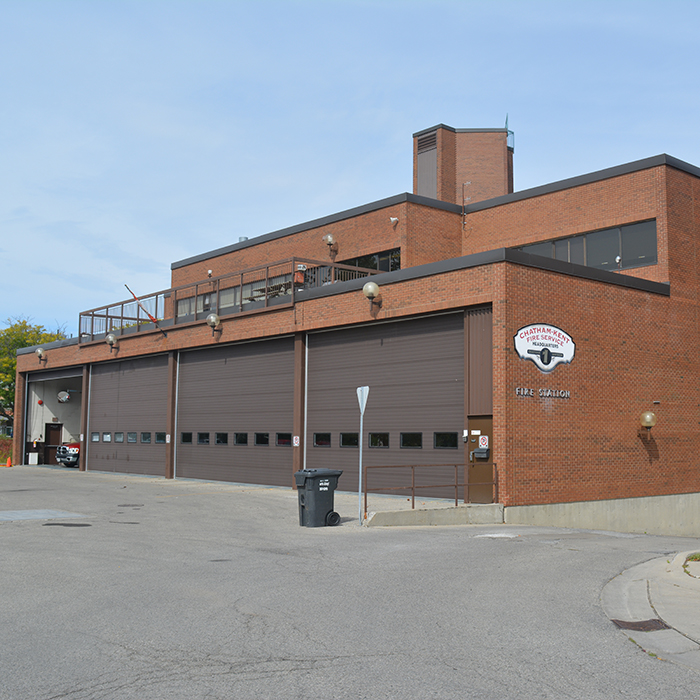
Most local residents will never need their services but for those who do, the Chatham-Kent Fire and Emergency Services is about to embark on a revolutionary change in local firefighting.
For the first time ever, career and volunteer firefighters are being trained to fight fires on a side-by-side basis across Chatham-Kent.
Known as Quickest Station Response, the venture has been more than two years in the making and is designed to treat both segments of the firefighting service equally.
In basic terms, it means the closest station responds to a call, and the full compliment of staff necessary to fight the fire will be drawn from both segments.
“If more firefighters are needed than are available at a particular time, we will trigger the system where volunteers will be called in immediately rather than going through the ranks of off duty career personnel,’” said Chatham-Kent Fire and Paramedic Chief Ken Stuebing.
He said although the concept seems simple, bringing it to fruition has been a complex task.
“We negotiated a new contract with career firefighters who realized it was a change but it’s better for the team and community,” he said.
The plan also required upgrades in volunteer training and equipment. “We have a new training officer and his goal has been to bring volunteer training up to that of career firefighters,” he said.
For the past six months the initial group of Chatham-Kent’s 350 volunteers have begun training every second weekend on their own time.
“We pay our volunteers well but we have high expectations of them” Stuebing said. “They complete training as a fully certified level two firefighter, the same as the career guys. Their level of commitment has been outstanding.”
Stuebing said making sure all firefighters have the same Personal Protective Equipment has been a necessity.
“We’ve standardized (the) self-contained breathing apparatus,” he said. “At one time we could have phased in new equipment over a year or two but when you’re operating together, everything has to match. You can’t have someone with a bottle (air supply) that gives one person 20 minutes of air and the next has a 40 minute supply.”
Technology regarding radio frequency and dispatching had to be standardized as well.
Chatham Mazda from Chatham Voice on Vimeo.
Stuebing said there are guidelines for response times and personnel from the National Fire Protection Agency are constantly changing, as is the nature of firefighting.
“There are fewer fires than before but those fires can be much more dangerous,” he said. “At one time construction was wood or brick. We now encounter new building and household products. We have particle board glued together, clips instead of nails and a host of petroleum based products in the home which can react in a wide variety of ways.”
He said the flashover time for total room combustion can be as little as three to four minutes, forcing firefighters to make decisions much faster than in the past.
“In a way, it’s a myth that buildings are safer,” he said. “They may be safer when they aren’t on fire, but once they are on fire they’re much more dangerous. We face a toxic soup of plastics, petrochemicals and synthetics that are a ticking time bomb. “
He said the two Chatham stations “operated in isolation” with career firefighters, the Wallaceburg station was a composite of career and volunteers and there were 16 volunteer departments.
“Until now we have not been able to get beyond that. We will now be one composite department. We have lots of resources but we haven’t used them effectively.
We are a huge department but we just didn’t operate like one. We now have access to use all the tools in our tool box and get our resources to wherever they’re needed.”
He said volunteer departments had territories that don’t reflect today’s reality. “There were historic issues and borders on a map that made no sense. If there was a fire in Dover, for example, our Chatham stations didn’t help them. They had to wait for other volunteer departments first.”
He said both career and volunteers have to learn from each other. “The career guys aren’t used to silo fires or using tanker trucks while the volunteers aren’t used to box stores and hydrants. We all have to grow.”
He said the plan recognizes the importance of volunteers. “Volunteerism has its challenges because everyone is busy these days,” he said. “Taking the time and spending the resources sends volunteers a message that they are valuable.
Stuebing said Chatham-Kent council has supported the move and prior chief Bob Crawford laid the groundwork.
“The timing is right for this,” he said. “We have the technology and the right group of people to make this work. Without a total buy in from our team, it couldn’t happen.”







its a start however more is needed thanks chief